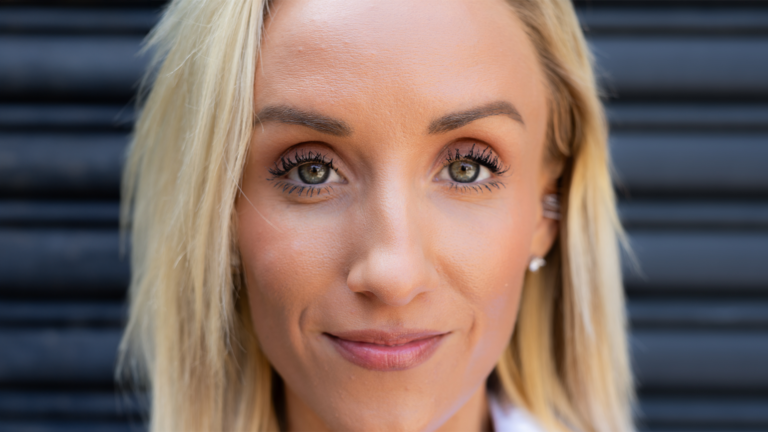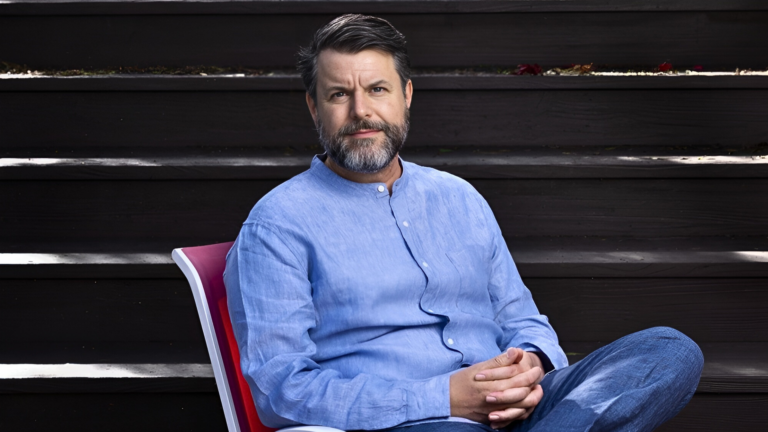This week’s conversation is with Dr. Krista Scott-Dixon, a former university professor and researcher who now focuses on helping people make meaningful change through the Precision Nutrition Coaching and coaching Certification programs.
Krista was a previous guest on Finding Mastery (#192) and I enjoyed our conversation so much that I wanted to have her back for round 2.
If you’re interested in learning more about Krista definitely check that first podcast out.
This episode is focused on what actually shapes behavior – just because someone has the knowledge that something is bad for them doesn’t mean they’ll actually stop doing that… so why is that?
I find this fascinating.
And if you are interested in learning more about behavior change methodology definitely be sure to check out Precision Nutrition’s Level 1 certification program … you can find more on that at precisionnutrition.com/findingmastery.
“Food, health behaviors, and fitness, are just the dashboard indicator lights, they are not the metrics in and of themselves. They’re not the goals in and of themselves even. We eat well and move so that we can do other things.”
In This Episode:
Precision Nutrition’s original mission
10, 15 years ago, we kind of thought that our mission was to dispense information, dispense, specifically, sports nutrition information to people that were kind of already interested, they were already reading about changing their bodies, they were already working out, they were already fit and they just wanted to get fitter or leaner or perform better. And so 15 years ago, we were just like, “Well, we’re going to tell them what to do, and they’re going to do it, and we’re going to come up with maybe good codified ways to do that, right? We’ll put it into good formula for them, or a nice handout, or something like that.” Our job is really to give that information.
How has the mission changed?
Now it’s really helping people manifest who that they want to be through that pathway of health and fitness and performance and nutrition. It’s really supporting the change process for people in the ways that they want to change. So, that requires understanding, not only in nutrition, obviously, and how things change over the years as we learn new stuff, but also human beings, and psychology, and change, and the other layers of performance that they don’t really tell you about.
What is deep health?
When you first get into something like bodybuilding or competition, we’ve really realized that there’s this huge iceberg under the water of performance, or body composition, or health, or whatever you are pursuing that is really rarely addressed. And so we’ve become really, I think, quite preoccupied with this idea of deep health, with human thriving and helping people achieve potential and defined in the ways that matter to them. And I think that’s a crucial piece too, not just assuming, “Oh, everyone wants to do this. Everyone wants to bench press whatever, everyone wants to have abs,” but kind of really facilitating that conversation around, what kind of life do you want to live, and what kind of person do you want to be in the world, and what do you value? So, it’s just a completely radically different conversation than the one that we started out doing.
How does Krista help people go from understanding information to actually putting it into action?
One of the first steps really there is just education, which is kind of paradoxical, right? Giving people more knowledge, but the piece of knowledge that we give them is that information alone is not enough, because I think that this is something that really puzzles people, like, “I know what to do. I really genuinely don’t understand why I’m not doing it. And this paradox to me is occupying so much of my attention and so many of my resources that I can’t think about doing things a different way because I’m so stuck on this fact, this dissonance that I’m experiencing.” And it’s interesting. I don’t know if this is a North American thing or what it is, but I find that people translate that puzzle then to some personal deficit in themselves. So, “What is wrong with me? I must be broken, stupid, lazy, whatever, self-sabotaging,” which is a term I really don’t like, “because I can’t do this.”
Knowing and doing are not related
I think just that truth in of itself, that knowing and doing are not related, I think that’s a huge leap for a lot of people. And then we start to shift into saying, “Okay. What actually shapes behavior? Let’s educate you around the actual determinants of behavior, where behavior comes from, and why you feel an axe in apparently conflicting or dissonant ways.” I think that really helps people to understand that, “Oh, yeah, I can feel a lot of ways about something, or I can do behaviors that seem to conflict, and that’s just part of being human.”
What makes people change?
I think we often have this idea that change comes from this one singular event, right? People talk about like, “Oh, I hit rock bottom and then I knew. I woke up the next day and I vowed I was never going to drink again,” or whatever. Or, “I had this epiphany, this vision.” Sure, sometimes that happens, but a lot of the time change comes from the 1,000 paper cuts of life, and there’s one day when 1,001 happens and you’re like, “God dammit, I am so done with this.” Right? Or not just injury, but little gestures. We make micro gestures towards change that maybe operate even below the level of our conscious awareness. But over time, these micro gestures accumulate. So, if you record each one of them, you could look back and reconstruct a narrative of them. If we’re in the business of change, how do we create micro moments for people that just nudge them towards change? Which is sort of that idea of behavioral economics, right? Just nudging people into change. And so for me, that’s always been just fascinating. Like, “Why today? Why is today the day that you make that decision?” Well, maybe today, you didn’t make the decision.
The powerful forces that act in favor of the status quo
We underestimate the degree to which we are relational and interactive beings. Maybe this is a North American thing, but we tend to contain our narrative of ourselves within ourselves. So like, “Oh, I’m this kind of person. I acted this kind of way.” And it’s always a very decontextualized conversation, rather than saying, “Oh, well, when I interact with this environment, I get this result. When I interact with this person, I get this result, or it brings out this side of me or whatever.” And so what are the forces acting against change Sometimes they can be extremely strong and cause a person to not change even in the face of overwhelming pain, right?
What are some practices she’s found helpful to create change?
I’m a big fan of experiments and experiences, because unless you directly contact what it’s like to do something, your adherence to that thing is going to be, at best, weak. I mean, there might be some truths in life that someone hands down to you, like parental advice where you’re like, “Gosh, that does sound good,” and you internalize it, and it’s there with you, but in general, there’s nothing that sticks as much as experiential hands-on learning and feeling something. So, as much as possible, I try to design experiments and hypothesis testing, right? So like, “Oh, I believe this to be true. I believe that I couldn’t possibly or I must always blah, blah, blah.” Okay, cool. That is a testable hypothesis. Let’s go and try something.
Experiential and experimental learning
The goal is to try new tasks, new actions, new coping strategies. That’s one of the objectives. And another objective is to challenge beliefs that you’ve had, like, “Oh, I couldn’t possibly do X, Y, and Z, or I must always do X, Y and Z.” Okay, cool. Let’s go try that. I mean, a parallel to that in psychology is exposure therapy for social anxiety, right? “Oh, I can’t possibly talk to people on the street. They’ll think I’m crazy.” Okay, go and talk to, I don’t know, 10 people on the street and then ask, “Did you think I was crazy?” And of course, most people will say, “No, you seem perfectly fine.” So, part of it is about helping people test beliefs and assumptions and established ways of doing things.
Health ends where high performance begins
In fitness, we have done a terrible job as an industry creating people that are deeply healthy, because the pinnacle of physical fitness is often someone who’s deeply unhealthy in all of these other domains, especially if you’re someone who’s very focused on physique, or even top performance, you’ll probably agree that the moment when you are your most photo ready, if we can call it that, or putting in your gold medal performance was the moment that you were sacrificing other domains of deep health. Now, to be clear, these are trade offs that we can choose to make. There’s no right way to do this. But we were producing people, for lack of a better way to say it, that looked amazing but felt like crap. And to me, I was just like, “I don’t want to make these people.”
Determining the right foods for you
Is this is a bad food or is this a good food, is, in a way, based on a kind of implicit model of human fragility. We live in such a bizarre time in human history, in a way, when these are the kinds of conversations that we can be having. If you eat oatmeal, oh my god, something terrible is going to happen to you, when in reality, humans rose to being the dominant species on the planet because we were scavengers, and omnivores, and could eat anything, anywhere, any time… maybe not anything. But it is because of our resilience and our ability to really adapt to a whole variety of niche diets. And if you look at the incredible variety of dietary patterns around the world, there’s huge diversity in the macronutrient makeup, the choice of foods that people eat, even the meal timing patterns, there really is no standard way for humans to eat. And so the only way we can truly determine whether something is working is to look at are you performing in the way you… Do you feel good? Do you mentally and emotionally feel good when you eat? Is it meeting your ethical standards? Is it tasty in the way that you like?


